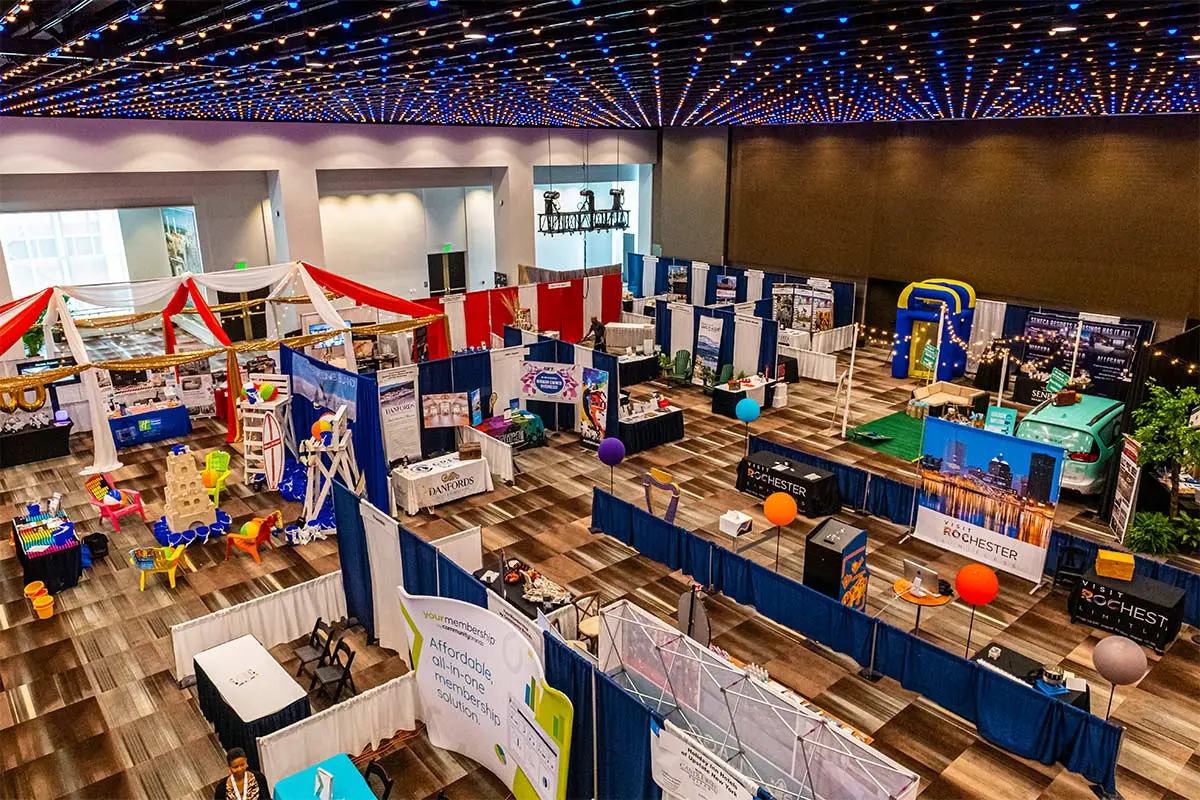by Shannon Licygiewicz, CEM, Albany Capital Center (ACC)
The hospitality industry has always thrived through innovation and forward thinking. At its core, meetings and events are constantly changing to be in line with the expectations of event attendees and organizers. Due to this, meeting spaces need to not only be the premier facility for how events are today, but for how they will be tomorrow and well into the future.
The ability to accommodate as many events as possible through flexible venues is key to maximizing your facility’s effectiveness in revenue generation. Arguably what is even more important is adapting the space to reflect the goals and objectives of your event organizers. For example, do you have an extra meeting room that is unoccupied during a daylong conference? Use that space for a powerlifting competition to take place during the evening or a night reception. An unused foyer or function space is suitable to host a community-focused event such as a volunteer function or blood drive.
Offering a range of options to organizers across a spectrum of industries is paramount – one size does not fit all. A hybrid model may not work well for a sporting event but may be perfect for a convention featuring virtual panelists, while an expo can offer a discount on services or products to entice in-person attendance.
To truly be an adaptable space, event facilities must strive to be at the forefront of event efficiency and how we can best allow guests to access what they need without ever stepping outside of our doors. This efficiency allows for venue space to be versatile and full of amenities for attendees, such as climate-controlled walkways, charging stations, pharmacy and stackable furniture.
Another trend to highlight is creating experiences for guests to enjoy throughout the building. These can be places for a cool photo op or a luxurious VIP lounge. Event organizers are able to utilize these areas for additional sponsorship and facilities see these as additional revenue drivers, so it’s a win-win for both parties.
Setting a standard for health and safety measures should not be discounted. Spaces that are designed with sustainability in mind are usually adaptable in nature, whether it’s through natural lighting, eco-friendly technology or balancing your event’s carbon footprint. The most impactful benefits will be appreciated intuitively once individuals walk through a venue’s doors. Trust me, they will be.
Environmentally responsible practices positively impact local communities and strengthen that connection between not only the facility and the community, but with local partners and organizations. Community involvement will also engage your workforce in being active members in their local communities, bolstering organizational culture and morale.
Now more than ever before, event planners desire venues that allow for memorable and engaging experiences for attendees in a number of ways. Be ready to answer their call.

Shannon Licygiewicz, CEM, is the general manager of the Albany Capital Center (ACC). Licygiewicz has served in the role since 2021 after having been the director of sales for the facility since it opened in March 2017. The ACC is a modern, premier event and meeting destination in New York’s culturally rich Capital Region that hosts an array of trade shows, consumer and social events and meetings for up to 5,000 guests. The ACC is operated by leading venue manager ASM Global and administered by the Albany Convention Center Authority (ACCA).
























